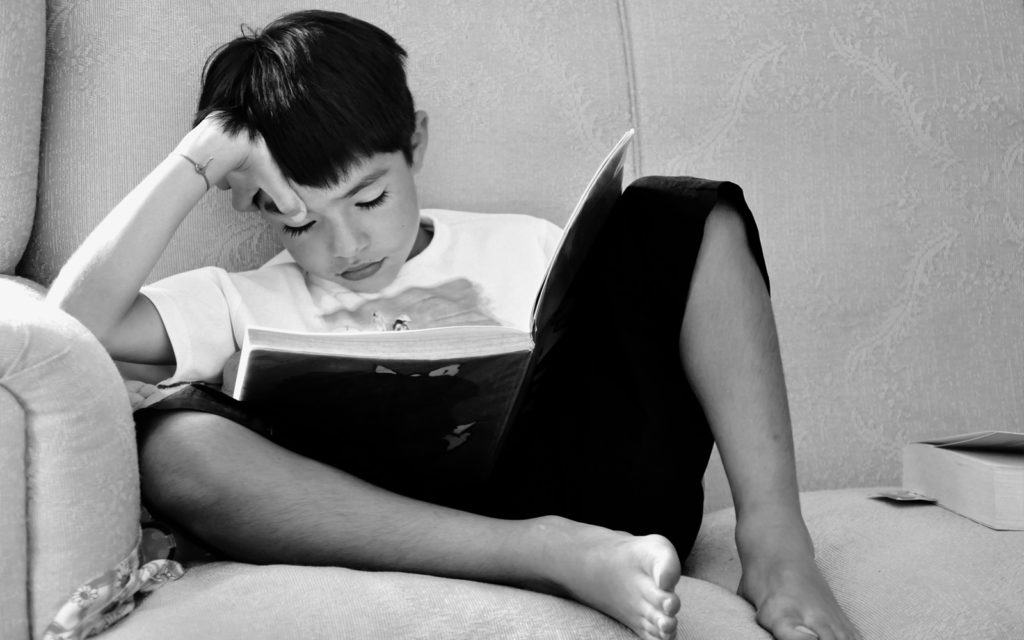Case files. You’ve probably seen them transported by caseworkers in rolling crates: hundreds and hundreds of strictly confidential documents holding details of a child’s history that have barely seen the light of day.
Years of visitation records, emails, doctors’ appointments, court reports, evaluations, treatment plans, school records and progress notes can easily add up to several thousand pages.
Because of the potential liability involved with removing a child from his biological parents, the government wants everything during a child’s time in foster care on record.

Most of us would cringe at the idea that someone holds that many details from a difficult season of our personal history, especially when we don’t have any control over what’s documented, but imagine your entire future being determined by a single note among thousands.
Imagine your entire future being based on the opinion of an inexperienced mental health worker who spent all of ten minutes with you when you were five years old.
Chances are, you’ve never had to endure this injustice, but let’s look at the story of a child who has.
Now, imagine that you are about to adopt an 11-year-old boy named Kevin, who was just placed with you two months ago. You learn from Hope & Home that his six-year old brother, Ricky, is also in need of a new adoptive home because his previous foster family backed out of adopting him.
You know the basics of their history: they were placed in foster care two years ago at the ages of four and nine; they have been living in a string of separate homes ever since; and their mother’s parental rights have been terminated.
You agree to have Ricky join his brother in your home and you plan to adopt them both.
The older brother, Kevin’s, adjustment into your home was smooth for the most part, but Ricky’s transition has been a little rocky. With his brother’s adoption only two months away and the caseworker pressuring you to adopt Ricky, too, you ask for his records.
RAD diagnosis
As you comb through every detail, you discover something interesting: a brief form by a therapist diagnosing Ricky with Reactive Attachment Disorder, or RAD, after one office visit when he was five years old.
You’ve never paid attention to the RAD threads on foster parenting forums, but now you are intrigued, so you google it.Reactive Attachment Disorder seems to be about the worst diagnosis a kid can have.
The internet says that kids with RAD never attached to their caregivers in infancy, and as a result, their brains are damaged.
The more you read about the symptoms of RAD, the more you seem to be reading about Ricky.
He won’t do his homework and has major tantrums if something doesn’t go his way. He seems detached from you, and he even does what this website says…wets the bed on purpose to “pee out his anger.”
A downward spiral begins
Now you’re having serious doubts about adopting him. Over the next few weeks, all you can think about is Ricky’s diagnosis and all of the RAD stuff you read online. You try a few of the parenting techniques for RAD and he just seems to get worse.
For example, when he “chooses” to wet the bed, you give him “natural consequences” by making him strip the sheets from his bed and wash them before school.
If he takes too long to do that, his “natural consequence” is being late for school. His “natural consequence” for being late for school is to go the library after school where you make him do school work, while you relax and read a magazine.
You’re still not seeing the improvement you had hoped, and the internet says when RAD kids don’t improve, they need residential treatment.
Before we learn how Ricky’s story turns out, let’s step back and look at the big picture. This is a young child who was removed from his birth mom one week before his 5th birthday and had four different foster homes during his first six months in care.
His fifth home was a single mom in her early 50’s, who loved him and planned to adopt him. After 14 months of living with her, even though he was thriving in her home, she decided that she was “too old” to adopt him.
Now, as he’s about to turn seven, he’s in his SIXTH home, living with his brother and undoubtedly reeling from the shock, sting and confusion of being rejected by the mom who had promised him over and over that she was going to adopt him.
What he needs more than anything at this junction in his life is to be adopted with his brother, and finally be in a forever home where he is loved unconditionally by a family who understands his trauma, grief and loss.
The worst thing for Ricky at this point is yet another rejection, but that’s what he was dealt.
As Kevin’s adoption gets closer, you just can’t envision a future with Ricky, not with his RAD issues, so with a mix of sadness and relief, you let the team know that Ricky will need to move because you won’t be adopting him.
You explained to the caseworker that even though you know it’s best for siblings to be together, you just don’t think you can meet the needs of a child with RAD.
The staff at Hope & Home attempted to encourage his foster mom that what Ricky was experiencing was profound grief and loss, not Reactive Attachment Disorder. It was futile; her mind was made up.
She wanted him out of her house. Sadly, this would not be the last move Ricky endured.

Over the next two years, Ricky went through FIVE more “adoptive” homes, each one having their own personal reasons for backing out of adoption, none of which had to do with Ricky.
In spite of all the disruptions he experienced, though, he did well in school, got along with other children, and had an easy temperament.
With the exception of the home who adopted his brother, each one of his foster families loved him and consistently wrote on his progress notes, “All he wants is a family,” They also described him as, “sweet, compliant, and eager to please.” So why was his brother’s foster mom unable to see and appreciate these qualities in Ricky?
It could be argued that three tiny letters, R-A-D, buried deep in the abyss of a case file, hastily jotted down by a naive therapist, clouded her vision, poisoned her interpretation of his behaviors, and cost Ricky two more years in foster care. (To learn what else might have contributed to Ricky’s bedwetting and difficulty bonding, see notes below).
Unfortunately, Ricky is not the only child who’s been assigned an irresponsible diagnosis by a well-meaning mental health professional. Over the last 20 years of working with families and children, Hope & Home has seen similar instances when a diagnosis of RAD has tainted parents’ understanding of a child’s needs, to the point that they wrote the kid off as a lost cause and set him adrift in foster care all over again.
How can we protect children, not only from the injustice of irresponsible RAD labeling, but also from being defined by a RAD label in the event that it is inflicted on a child?
We have to be empowered as professionals and parents with sound information and we have to appreciate the lessons learned from Ricky’s story. We also have to look at the big picture of a child’s life, understand grief and loss, and inventory our own role in any difficulties we have bonding with a child.
Let’s start with The Report of the APSAC Task Force on Attachment Therapy RAD, and Attachment Problems. In their report, diagnosticians are implored to consider the following cautions before diagnosing children with RAD or any attachment problems:
- RAD is one of the least common and most poorly understood disorders in the Diagnostic and Statistical Manual. Research has shown that even children who have been adopted from Russian orphanages show some ability to attach over time.
- Assessment should first consider more common disorders, conditions, and explanations for behavior before considering rarer ones. Assessors and caseworkers (and parents!) should be vigilant about the allure of rare disorders in the child maltreatment field and should be alert to the possibility of misdiagnosis.
- Diagnosis of attachment problems should never be made simply based on a child’s status as maltreated, as having experienced trauma, as growing up in an institution, as being a foster or adoptive child, or simply because the child has experienced pathogenic care. Assessment should respect the fact that resiliency is common, even in the face of great adversity. (To read the full report, click here).
What are some lessons parents and professionals can take away from Ricky’s story?
- Case files may offer a historical glimpse of a child’s life, but should not be used to define a child. (Can you imagine being defined by a stressful time in your life? Can you imagine having the challenges you experienced during that time meticulously documented and then held against you later?)
- Children in foster care are experiencing acute stress, and their behaviors while experiencing acute stress do not necessarily equal any disorder.
- The stigma of a RAD diagnosis is profound, and some of the parenting techniques often recommended for RAD kids are mean, controlling and punitive. Mean, controlling and punitive parenting decreases trust and bonding. According to the APSAC Report, parental sensitivity is the only way children to heal from adverse experiences.
Alas, as heartbreaking as Ricky’s story was, his 11th family wasted no time making him theirs forever. The professionals on Ricky’s case, who had shed many tears with every loss he experienced, were overjoyed with gratitude that this child would finally be loved by two parents and a houseful of siblings.
Due to Ricky’s exceptionally long time drifting in foster care, the judge expedited the adoption to be finalized in record time. Ricky was placed with his forever family in November, and he was adopted in December!
It was a Christmas Miracle. His new parents gave him the time, the respect, and the sensitivity he needed to heal from the numerous losses he experienced at such a young age. Today, he is a strong, athletic 15-year-old boy, surrounded by the only thing he ever wanted: a family to call his own.
Contributions to Ricky’s bedwetting and difficulty bonding:
Now, what might explain Ricky’s bedwetting besides RAD? Research tells us that bedwetting is involuntary and is a result of emotional distress, genetics, or digestive troubles, not “anger.”
It’s easy to understand the profound loss and emotional distress Ricky was experiencing as a young child who suddenly had to leave the mom he believed would adopt him.
Regardless of the cause of his bedwetting, however, the most effective response is one with a matter-of-fact-compassion (“Oops, the bed is wet; let’s get you changed; I’ll take care of the sheets; accidents happen; it’s no big deal.”) as opposed to shame, punishment and assigning malicious intent. (Note: bedwetting in boys that persists past the age of six is worth getting evaluated by a pediatrician to rule out medical causes, but should still be handled in a way that preserve the child’s dignity).
What are some other possible explanations for Ricky’s difficulty bonding with his brother’s foster mom?
1. Complex grief and loss could explain the disconnect she felt with Ricky. Children have difficulty bonding with a new caregiver when they are still grieving the loss of a previous one(s).
2. The punitive parenting techniques the foster mom got from the internet likely increased the emotional distance between them, rather than cultivating sensitivity and closeness between them.